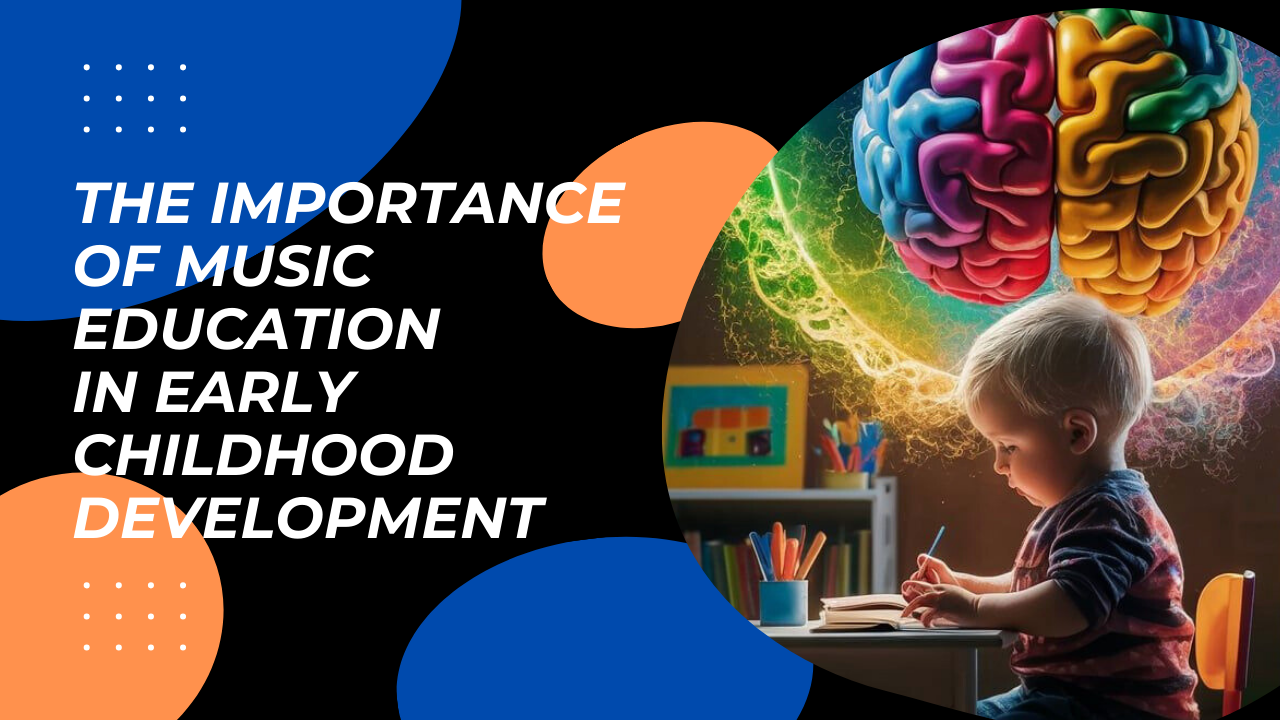Introduction
Have you ever wondered how a simple song can transform a child's learning experience? Music education in early childhood is not just about singing; it's a powerful tool that fosters growth in various dimensions of development. This blog aims to enlighten Australian parents and educators on the critical role music plays in early childhood development. By understanding the importance of music education, we can better appreciate its benefits, including cognitive, social, and emotional advantages. Let's explore how introducing music to our youngest learners can create a more enriched and engaging educational environment.
Cognitive Benefits of Music Education
Enhances Memory and Concentration
Did you know that music can significantly boost a child’s memory? Engaging with music requires kids to remember lyrics, rhythms, and melodies, enhancing their recall skills. Studies show that children who participate in music education often perform better academically, as they can concentrate longer on tasks. For example, when children learn songs in a class, they not only memorize the words but also the sequences and patterns, which strengthens their cognitive abilities.
Additionally, music activities like clapping to a beat or following along with a tune help improve concentration. When kids focus on music, they're training their brains to pay attention and filter out distractions, skills that are invaluable in their overall learning process.
Stimulates Brain Development
What if we told you that music could physically change the structure of a child's brain? Engaging with music has been linked to increased brain growth, particularly in areas associated with language and reasoning. For instance, research shows that children who take part in music classes exhibit larger corpus callosum sizes, the part of the brain that connects the left and right hemispheres.
In Australia, early childhood programs that incorporate music often report remarkable brain development in their students. These programs stimulate young minds, providing a foundation for lifelong learning. By simply introducing children to musical instruments or singing, we are encouraging a rich environment that fosters creativity and intelligence.
Social and Emotional Benefits of Music Education
Fosters Social Skills
Have you ever watched kids interact during a music class? The collaborative nature of children's music classes promotes social skills in a fun and engaging way. When children participate in group activities—like singing together or playing instruments—they learn to communicate, share, and cooperate. This interaction helps them build essential social skills that will benefit them throughout their lives.
In an Australian context, music programs in schools often include group performances or collaborative projects. Such activities not only enhance musical skills but also encourage teamwork and the ability to work with others towards a common goal, laying the groundwork for strong friendships and interpersonal relationships.
Boosts Emotional Well-being
How does music make your child feel? For many children, music serves as a vital emotional outlet. It allows them to express feelings that might be difficult to articulate otherwise. Learning through music can also boost emotional intelligence; as kids sing or play, they explore various emotions, understanding their own and those of others.
Australian educators have noticed that children engaged in music often display improved mood and decreased anxiety. For instance, simple activities like singing lullabies or rhythmic clapping can soothe a restless child, making music a valuable resource for emotional regulation and well-being.
Physical Benefits of Music Education
Enhances Motor Skills
Did you know that music can improve your child's motor skills? Engaging in musical activities, such as drumming or dancing, enhances coordination and encourages physical activity. As children learn to play instruments, they develop fine motor skills, which are crucial for tasks like writing and self-care.
In Australia, many early childhood education programs incorporate movement-based music activities, promoting not only rhythm but also gross motor skills. This holistic approach to learning allows children to connect body and mind, fostering overall physical development.
Encourages Healthy Habits
What role does music play in promoting healthy habits? Music education encourages physical activity in a fun and engaging way. Dance and movement are integral to many music classes, helping children to enjoy exercise while developing a love for music.
Moreover, establishing routines around music can lead to long-term health benefits. Children who are active in music are often more inclined to maintain a healthy lifestyle as they grow, developing an appreciation for physical activity through enjoyable experiences. Australian parents can easily incorporate music into family routines, creating a joyful environment that fosters healthy habits.
Implementing Music Education in Early Childhood Program
Incorporating Music into Daily Routine
How can you effortlessly add music to your child's day? Integrating music into daily routines can be simple and rewarding. Parents can use songs during transitions—like cleaning up or getting ready for bed—to make these tasks more enjoyable. Singing simple songs or playing calming music can also create a positive atmosphere, making daily activities smoother.
In Australian preschools, educators are increasingly finding ways to embed music throughout the day, from morning welcomes to storytime. These small but impactful moments help reinforce the importance of music in early learning.
Choosing the Right Music Program
What should you look for in a music program for your child? When selecting a music program, consider factors like curriculum, instructor experience, and class size. Look for programs that prioritize creativity, exploration, and engagement.
In Australia, many reputable children's music classes focus on learning through music, offering a rich blend of singing, dancing, and instrument play. Resources like community centers and online platforms can provide insights into the best options for your child's musical journey.
Conclusion
In summary, music education in early childhood is vital for holistic development. It fosters cognitive growth, social skills, and emotional well-being while encouraging physical activity and healthy habits. By incorporating music into early learning programs, parents and educators can create enriching experiences that lay the groundwork for lifelong learning. Let's embrace the magic of music and ensure our children benefit from its incredible advantages.
